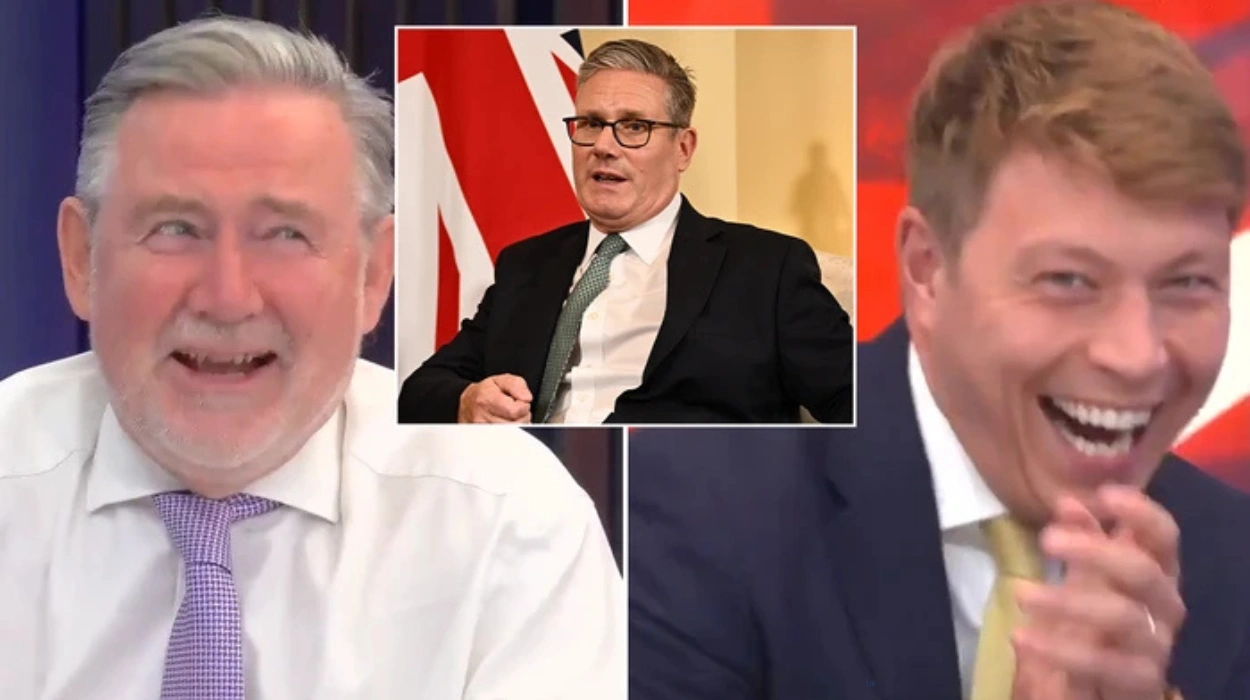UK (Parliament Politics Magazine) – Labour MP Barry Gardiner rejects Sir Keir Starmer’s votes-at-16 policy, warning it could backfire politically as the party pushes for electoral reform.
As reported by GB News, Barry Gardiner has come out against his party’s promise to lower the voting age to 16, insisting it should remain at 18.
Barry Gardiner’s views on 16-year-olds voting
During a recent interview debating the idea of votes at 16, Barry Gardiner said,
“I’m not in favour of 16-year-olds voting. You shouldn’t have the vote until you’re 18.”
He justified his opposition by arguing the move could politically harm those currently in power.
Mr Gardiner said,
“If you are the Government, you are that authority. Even if you were doing it for the most selfish of reasons, not the most principled of reasons, for which I’m sure the Government is doing it.”
His comments come as Labour plans to bring forward a bill granting voting rights to 16- and 17-year-olds.
Referring to the wider implications, Mr Gardiner said,
“It’s a really important point, but if you have an extra one and a half million extra people voting, you have to redraw the boundaries.”
The MP stated that a large rise in voter numbers would require changes to constituency boundaries.
He stated,
“The Boundary Commission stipulates that constituencies have to have an electorate that is 75,000 or five per cent either way. We’ve just had it, and if we have to admit all these new people onto the electoral register, we’ll have to do it all over again.”
How did Labour plan to reshape voting rules?
Labour’s 2024 manifesto pledges to extend voting rights to 16-year-olds in England and Northern Ireland, in line with existing laws in Scotland and Wales.
The government plans to lower the voting age to 16 is part of broader reforms in the paper “Restoring Trust in Our Democracy.”
The other plan includes automatic voter registration, more flexible ID rules, and revised postal voting deadlines.
What did critics and youth groups say about votes at 16?
Some critics have rejected the plans as “gerrymandering in school uniform,” claiming it’s a calculated move to boost Labour’s chances before the next general election.
Youth organisations, including UK Youth, have voiced support for the proposal, stating that teenagers of working age deserve the right to shape their future.
Angela Rayner’s views on lowering the voting age
Deputy Prime Minister Angela Rayner dismissed concerns within her party over the voting age reform. She stressed about the growing danger of misinformation influencing voters.
She said,
“You can’t turn around and say: I don’t like what democracy is going to give so I’m not giving you democracy. That argument is, to me, a cul-de-sac.”
Ms Rayner stated,
“What we have to do is engage with people about the importance of democracy and the importance of them exercising their democracy, and our argument of why we’re the right people to do the job.”
She said,
“I’m more concerned about misinformation, fake news, the way people get information from these days, and how that can skewer democracy more so than I am about giving a 16- and 17-year-old the opportunity to exercise their right to vote.”
The deputy PM stated,
“Where there’s foreign influence, people should be able to identify that, as opposed to some sort of ban on donations or picking on a particular individual.”
She added,
“I think [you need to have] transparency about where that … money comes from, and then the electorate can see that, and can see whether there is a conflict of interest, or where a particular policy is coming from.”
What did Luke Tryl say about lowering the voting age?
Luke Tryl, More in Common’s director, stated,
“Beyond the electoral impact, the bigger question is whether this change will be popular. The public opposes lowering the voting age by a 48% to 27% margin, and it is not near the top of many Britons’ priorities.”
What did Dame Rachel say about giving teens the vote?
Children’s Commissioner Dame Rachel de Souza said lowering the voting age would signal that teenagers’ voices “do matter.”
She stated,
“Young people today are socially aware, politically engaged, and full of practical ideas to make England the best place to grow up, but they tell me they feel like no one is listening to them. In my Big Ambition survey, just 22 per cent of children told me they think politicians listen to them – earlier this year, that number had dropped to 16 per cent.”
Ms Rachel said,
“Lowering the voting age to 16 sends the message that their voices and ideas do matter. Now it needs to be backed by a solid commitment to reflect their views in policy decisions about every part of their lives, from their education to their housing to their future jobs, as well as helping them to understand and make the most of the privilege of being able to vote.”
She added,
“As Children’s Commissioner, children tell me they want to be part of decisions about their futures, but they need the tools to help be part of the process. That means giving children brilliant lessons in citizenship and democracy, allowing them to learn through discussion and debate.”
Key points of UK voting reform
- Youth aged 16 and 17 will now be allowed to vote.
- Bank cards and veteran ID cards can now be used as evidence of identity.
- Donors must prove UK or Irish residency and an income source for donations over £500.
- Fines up to £5,000 and bans of up to 5 years for threatening candidates or spreading false info.


